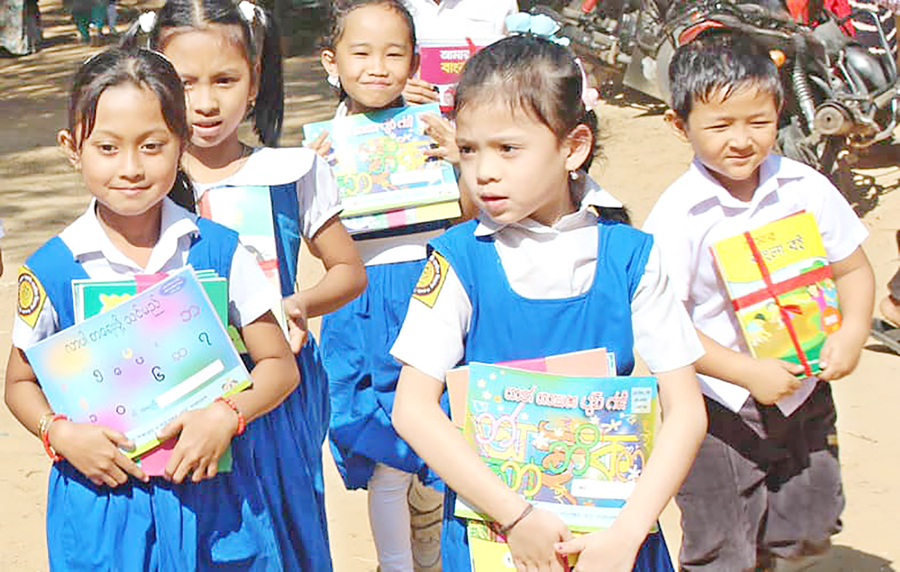Celebrating triumphs, denying existence
Indigenous communities deserve a better deal

Published :
Updated :

In the bustling sports arenas of Bangladesh, names like Rituparna Chakma, Sura Krishna Chakma and Ramhim Lian Bawms resonate with pride and admiration. These star athletes have brought honour to the nation, earning accolades on national and international platforms. Yet, when their indigenous identities come to the fore, the scenario reverses fast. Underneath the glares of medals and applause lies an uncomfortable reality: while we celebrate their triumphs, we do not hesitate to denigrate their right to have their native identities recognised.
Recently, cross-sections people of indigenous communities took to the streets to demand their recognition as natives of this land. What followed was not dialogue or empathy but violence, orchestrated by extremists emboldened by shadowy alliances with political groups, including influential student leaders. The imagery of bloodied protestors-people whose ancestors have lived in this land for centuries-should haunt us as a society.
When Rituparna dazzles in the football field or Ramhim Lian Bawm makes history in table tennis, the nation collectively gets buoyed with pride. Social media timelines flood with congratulatory posts, and their victories are cited as symbols of national unity. Yet, such a performance lasts only as long as these individuals conform to the roles we've assigned them. The moment they demand recognition for their communities or speak of injustices, the applause turns into silence, and the silence often erupts into violence by certain predators.
This paradox-celebrating individuals while suppressing the communities they represent-exposes the fragility of our commitment to diversity. It reveals a society that is comfortable commodifying indigenous success stories but deeply uncomfortable confronting alleged injustices facing indigenous people.
The suppression of indigenous voices is not an isolated phenomenon. It is part of a broader trend where dissent is increasingly stifled, and narratives of exclusivity and homogeneity are promoted. Extremist groups, often operating under the guise of patriotism or cultural preservation, are often silencing marginalized voices. The swoop on indigenous protestors is a reminder that these forces are not fringe elements but entities with significant influence and backing.
The involvement of student leaders-historically vanguards of progressive movements-in such acts of violence is particularly disquieting. It signifies a dangerous shift, where the spaces meant to foster critical thinking and activism are now breeding grounds for intolerance. This is not merely an attack on people of indigenous communities-- it implies an attack on the pluralistic ethos that has been a cornerstone of Bangladesh's identity.
Any denial of the existence of indigenous communities as natives and labelling them as settlers is not only factually incorrect but also morally reprehensible. The indigenous peoples of Bangladesh, with their rich history, languages, and traditions, are the true custodians of this land. Their roots run deeper than the foundations of many modern settlements. Any attempt to rewrite history-fabricating narratives that erase the very existence of those who have lived here for centuries-is ludicrous. Such attempts at what is deemed historical revisionism reveal an intent to delegitimize and displace these communities, stripping them of their rights and identity. This is not just wrong--it is a direct affront to the values of justice, truth, and humanity.
If such trend continues, the consequences will be dire. A nation that suppresses its diversity and silences its marginalized voices cannot hope to achieve sustainable progress. The cultural richness and resilience of indigenous communities are assets that should be celebrated and protected, not denigrated. Moreover, the international community is watching. The treatment of indigenous people is a litmus test for any nation's commitment to human rights and democracy.
The writer is marketing and communications consultant. alikbhowmick2012@gmail.com


 For all latest news, follow The Financial Express Google News channel.
For all latest news, follow The Financial Express Google News channel.